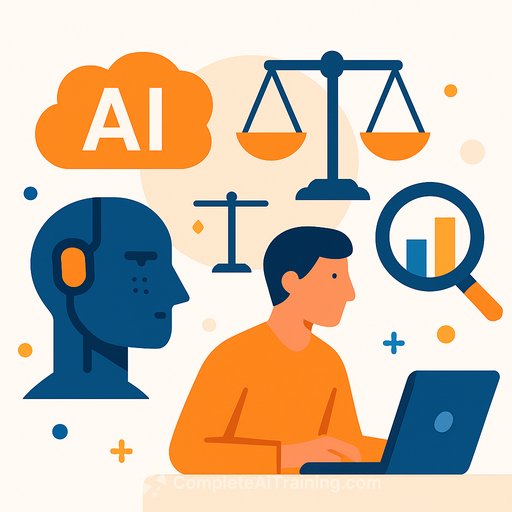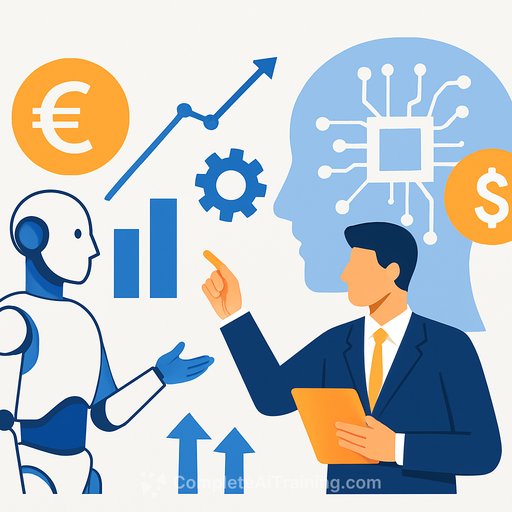AI in R&D: Grounded in Truth, Ethics, and Consumer Needs
Generative AI has transformed product development, accelerating timelines and reducing costs significantly. Dr. Nikolai Reynolds, Ipsos Global Head of Product Testing, highlights how blending synthetic and real consumer data delivers comparable business decisions in 95% of cases—often faster and more cost-effectively. Yet, he stresses that AI should never replace human judgment. The future of R&D depends on responsible AI use that prioritizes authenticity, prevents bias, and centers on real consumer needs.
Changing Client Expectations and the Future of R&D
Clients worldwide now expect innovation processes to be faster, smarter, and more agile. Traditional stage-gate models are giving way to continuous, interconnected workflows where ideas, concepts, and packaging develop in parallel. This approach, dubbed "Innovation Genesis," relies on a "consumer data fabric" that integrates diverse data sources to fuel insight generation and validation.
For R&D teams, this means shifting from tactical execution to strategic oversight. Their role evolves toward assessing AI-generated insights for feasibility and scalability, all while ensuring the innovation process remains consumer-focused. This future demands a commitment to responsible innovation—safeguarding data, avoiding AI bias, and maintaining human oversight guided by principles of truth, fairness, and ethical use.
AI, Generative AI, and Synthetic Data: Reshaping Product Development
Generative AI produces synthetic data—including texts, images, and sounds—that can simulate consumer responses with high accuracy. Ipsos uses deep learning to create synthetic consumer profiles, enabling faster and cheaper research without sacrificing decision quality. Combining synthetic and real human samples leads to 95% agreement with full human studies, cutting costs by 20-60% and reducing timelines by up to half.
Large Language Models (LLMs) and Diffusion Models support idea generation, product positioning, and packaging design. Validations show that products developed with Gen AI support achieve 10% higher trial rates. However, the key lies in validating outputs and using data responsibly. Ipsos’s proprietary platform, Ipsos Facto, ensures client data privacy and prevents data sharing with public AI models.
Real-World Impact: AI Accelerating Innovation
A compelling example comes from a South African wine producer facing tight deadlines. Starting with feedback from 69 consumers, Ipsos augmented the study with 131 synthetic users, creating a dataset that matched the confidence of a larger study in less time. Using InnoExplorer AI, a generative AI tool, the team analyzed consumer comments to generate and rank 10 product improvement ideas.
The top suggestion—balancing sweetness and bitterness—led to the creation of "Pinotage Harmony," a complete product concept including consumer insights, benefits, and packaging design. Remarkably, this entire cycle from consumer feedback to a market-ready concept was completed in just one week. This case shows how AI can accelerate research and enable creative outputs from raw data.
Building Future-Ready Innovation Teams
As AI-generated data becomes more common, traditional databases and models risk producing flattened, homogenized insights. Publicly available data often overlaps, diluting uniqueness. This shift makes truthful, fresh, and relevant data critical as a competitive advantage.
Innovation teams must focus on gathering data that truly reflects their target consumers and ensuring that AI outputs are validated and ethically managed. Embracing this mindset will keep teams prepared for ongoing changes in technology, consumer behavior, and market demands.
For product developers looking to deepen their understanding of AI’s role in innovation, exploring practical AI training can be valuable. Resources like the Complete AI Training platform offer tailored courses to build relevant skills in AI-driven product development.
Your membership also unlocks:






